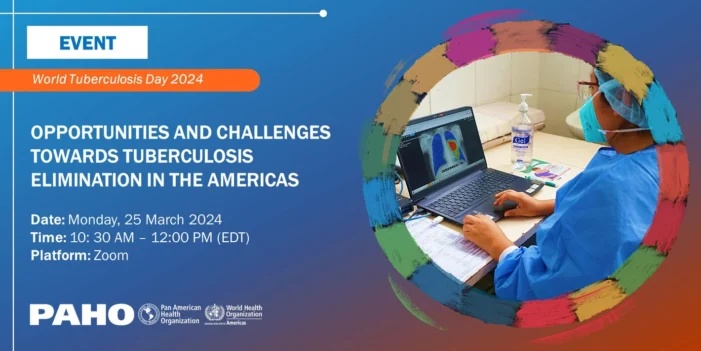By PAHO
Globally, tuberculosis (TB) is the leading cause of death from infectious disease. According to the World Health Organization’s Global TB Report 2023, an estimated 10.6 million cases were reported worldwide, with 1.3 million deaths, of which around 167,000 were among people living with HIV. Global efforts to combat TB have saved approximately 75 million lives since 2000.
In the Region of the Americas, an estimated 325,000 people fell ill with TB, representing a 14% increase compared to 2015, with a gap of 83,000 undiagnosed individuals. Similarly, about 35,000 people died from this cause, a 41% increase compared to 2015, with 31% (11,200) attributed to TB/HIV. Every day, approximately 96 people lose their lives to TB, and nearly 890 people contract this preventable and curable disease.
Eliminating tuberculosis by 2030 is one of the Sustainable Development Goals, which has become a challenge amidst a pandemic. However, the COVID-19 pandemic has dramatically increased awareness of the importance of health for social, economic, and political stability and has accelerated the adoption of innovations in health service delivery, creating unique opportunities to increase the resilience of health systems in the face of current and future crises.
Considering the significant heterogeneity in the region, with countries ranging from low-incidence situations nearing pre-elimination to high-burden settings, it is imperative to intensify efforts towards TB elimination in the Region of the Americas. Political will, financing, rapid adoption of innovations, and community engagement are essential to progress toward elimination.
Simultaneous translation: English, Portuguese, and Spanish.
Time:
Monday, 25 March 2024
Hora:
10:30 AM-12:00 PM (EST Time)
Objective
To engage high-level leadership and action to advance TB elimination in the Region of the Americas, with urgent resource investment, ensuring universal and equitable access to care and attention focusing on populations in situation of vulnerability.



